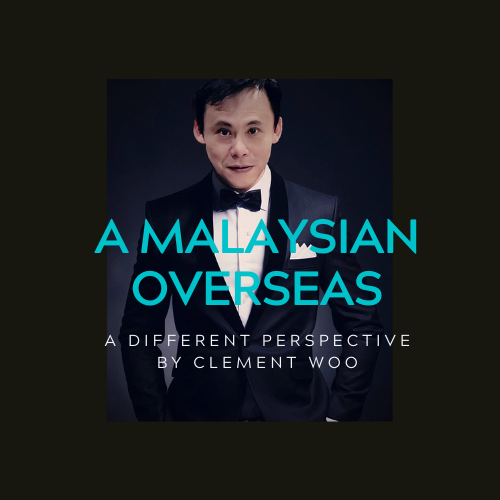Cambodians are generally very gentle and soft-spoken, not unlike many of our Malay friends here in Malaysia. Make no mistake, having to endure the hellish Khmer Rouge period and almost 16 years of economic embargo (ended after the Paris Peace Accord on 1992), the Khmers have very high survival instincts and they are fast learners, sometimes leapfrogging others in order to play catch up.
The Covid-19 pandemic has severely impacted most of the world’s economy. Cambodia is no exception given her reliance on tourism, garment exports, agriculture and construction. According to the World Bank’s economic update on Cambodia, the country’s economy this year will contract by -1% to -2.9%. Tourism reeled from tighter restrictions on visitors and lockdowns abroad. More than 250 garment factories employing 130,000 workers had suspended operations. Now that many people lost their jobs, the survival instinct kicked in again. Let me illustrate.
The Tuk-Tuk
In Cambodia, I like to travel in Tuk Tuk which is convenient and fast. Trust me, driving is not a joy in Cambodia, given the traffic and road conditions here. Like almost everyone else, I too have my own favourite Tuk Tuk driver, Sarin. When I first met Sarin, he was driving the traditional long body Tuk Tuk, spoke little English and me with my broken Khmer. Most of the time he used Google Translate to send funny, but understandable English texts to me. He was extremely hardworking and one of the most motivated men whom I have ever met.
Hardworking, partly because his Prime Minister understands what hardships his nation and people have gone through. Never once did the Prime Minister accuse or insult his own people as lazy. Dalai Lama once said, “if you can’t help them, at least don’t hurt them”. The government did help them in their best but limited possible ways and at the same time rallying its people to play catch up on the lost 20 odd golden years rather than playing politics all the time.

When Grab style Tuk Tuk first entered Cambodia a few years ago, Sarin approached me for a small loan plus whatever of his savings and an old Tuk Tuk to trade in. He wanted to be among the first few to operate the new generation Grab style Tuk Tuk. He saw that was one of the ways he can elevate himself out of the poverty cycle he was in. Despite his imperfect English, I did understand it when he confided that no one wants to be born poor, he just needed some help so that he can escape from the poverty cycle. I agreed to help. Few years later, I read the same inspiring statement from my own former Prime Minister, our PM6.
During this Covid-19 pandemic period when tourist arrivals dwindled to almost zero and to supplement his loss of income, he signed up as a retailer for some Thai brand health products. Heck, he even took some photos of me with his products with me giving positive testimonial and posted it online. He was so full of enthusiasm that he learnt how to go Live sale on Facebook. From a humble Tuk Tuk driver, Sarin has transformed himself into a smartly-dressed executive conducting Live Facebook sale. Sheer determination and a refusal to be beaten down are the lessons that I learnt from this man.
There is another driver whom I met many years ago when I first ventured into the Kingdom of Cambodia, His name is Borin. He owned a tourist van, those reconditioned old SsyangYong van but oddly with a Mercedes emblem. I paid Borin on per usage basis, that means he used to ferry other tourists and foreign investors anywhere within the Kingdom during his free time. I used quite a lot of his services during those days. Borin is a tall, dark but quiet guy. Highly dependable, rain or shine he was always punctual.
Business was good, after a year Borin bought another fake reconditioned Korea made Mercedes van. He got his brother in law to drive the second van. More incoming businesses. Cambodia was overflowing with foreign investments during those years, first the Koreans, Singaporeans and Malaysians. Then the Chinese poured into the seaport city of Sihanoukville. So Borin decided to use his hard-earned money to buy a new Hyundai, his third van. While doing all these, he did a lot of brokering works in buy and sell of used vehicles.
One day, while on the way back to Phnom Penh from a faraway province, he told me, “Boss, someone wants to buy my family land. I am unsure whether to sell it or not.” Borin’s family owned about few hectares of land at the outskirts of the city. They planted rice and some vegetables on the land. The government decided to build a highway very near to their land and shorten the distance to the city centre by half. His land’s value increased from practically nothing to a few million dollars overnight. Sensing his doubt and fear of handling so much money, I advised him: “Sell it Borin. Use the money to do what you do best.”
He did that. His used cars, food and van rental businesses flourished, zero gearing and healthy cash reserve. Highly conservative and always prepared for the worst-case scenario, he is one of the not so many who can weather through this pandemic economy meltdown unscathed .
“Business opportunities are like buses, there’s always another one coming” – Richard Branson

New Malaysia Herald publishes articles, comments and posts from various contributors. We always welcome new content and write up. If you would like to contribute please contact us at : editor@newmalaysiaherald.com
Facebook Comments